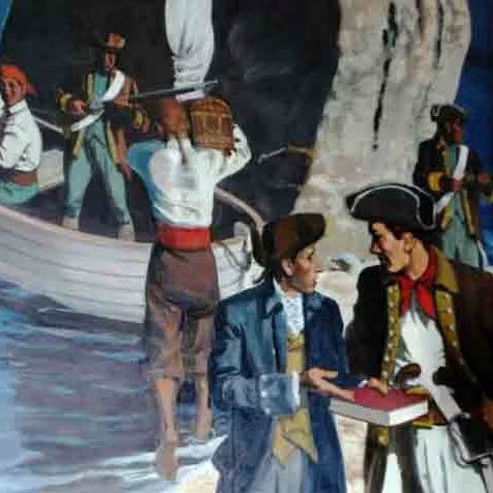
Table of Contents
Who Was Abraham Woodhull?
Abraham Woodhull played a pivotal role during the American Revolution as a member of the Culper Spy Ring, which provided crucial intelligence to General George Washington to support the Patriots’ efforts. Historians believe that Woodhull and his fellow operatives were instrumental in uncovering Benedict Arnold’s treason and the information that ultimately led to the arrest of British Major John André.
Early Life and the Culper Spy Ring
Born in 1750 in Setauket, Long Island, New York, Woodhull was the son of a prominent judge who advocated for colonial independence. His commitment to the cause of liberty became evident when he began espionage activities for the Continental Army in late 1778, joining the ranks of the Culper Spy Ring.
Under the guidance of Benjamin Tallmadge, his childhood friend and Washington’s director of military intelligence, Woodhull adopted the code name “Samuel Culper.” He engaged in covert operations, frequently traveling from Setauket to Manhattan under the pretense of visiting his sister. However, British forces quickly became suspicious of his activities, and in June 1779, they attempted to apprehend him at his home in Setauket; fortunately, Woodhull was not present.
This close call prompted Woodhull to innovate his methods of intelligence gathering. He enlisted the help of Robert Townsend, a merchant with business interests in Manhattan, to collect information regarding British military strategies. Operating under the alias “Samuel Culper Jr.,” Townsend would relay messages via courier to Woodhull’s farm. To facilitate communication, Woodhull relied on signals from his neighbor, Anna Strong, who would display specific items of laundry to indicate when it was safe to meet.
The Culper Spy Ring is considered one of Washington’s most effective espionage operations. Their intelligence efforts contributed significantly to the discovery of Arnold’s treason and facilitated the capture of Major André, who was conspiring with Arnold to compromise the Continental Army. Additionally, the ring’s reports likely thwarted a British assault on French forces stationed in Rhode Island to support the colonists.
Woodhull and the Culper Ring continued their espionage activities until the conclusion of the war in 1783, although their effectiveness waned in the later years.
Wife and Children
In 1781, Woodhull married Mary Smith. The couple had three children. After her death in 1806, Woodhull remarried in 1824.
Later Life and Death
Woodhull held several important local positions in his later years, including magistrate of Setauket, judge of the Court of Common Pleas and first judge of Suffolk County. He died in 1826 in Setauket.
